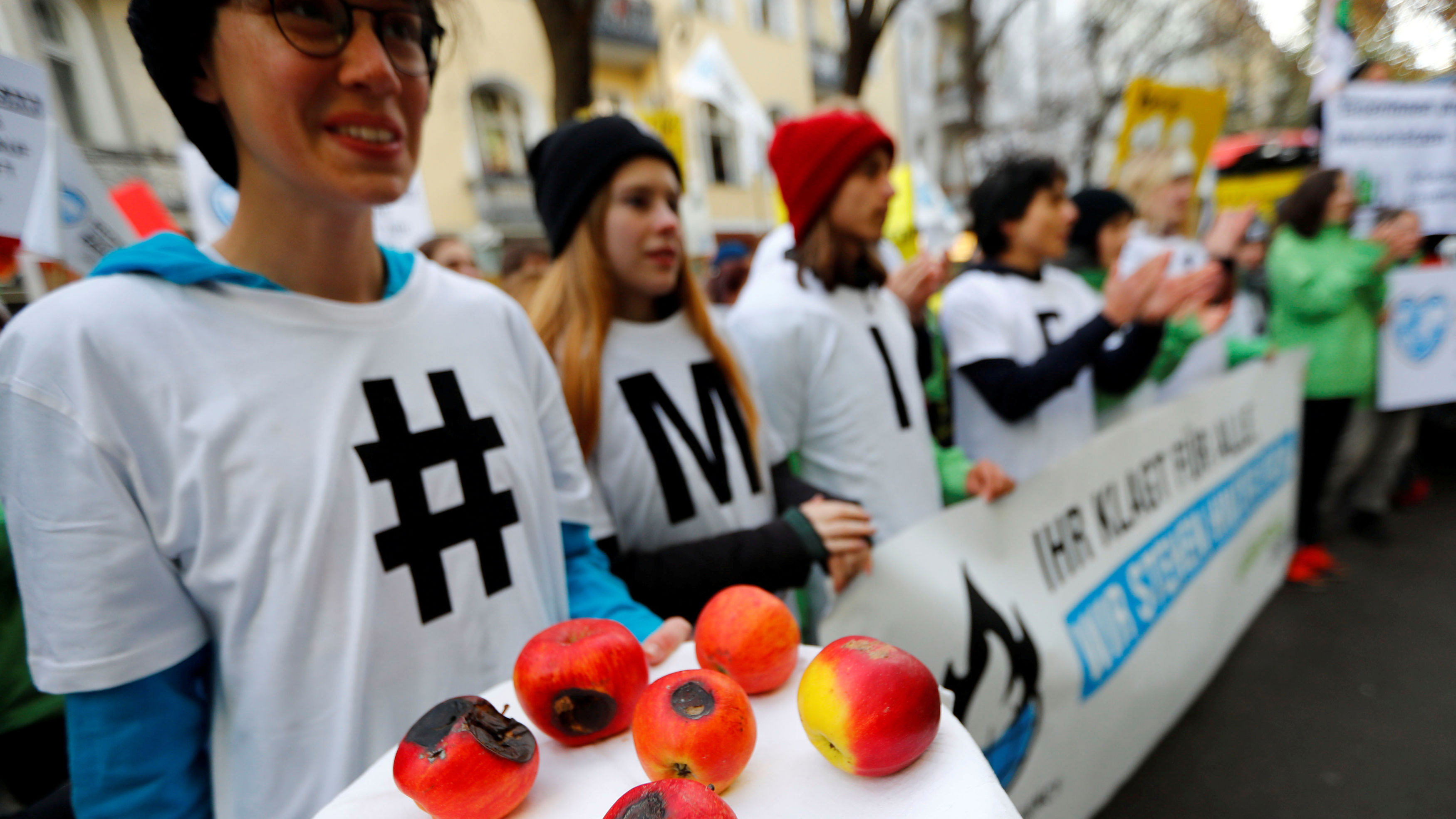A group of German farmers have been dealt a setback in their fight against the government over climate change. On Thursday, Berlin's Administrative Court rejected their lawsuit, saying they lacked legal standing.
In the suit, the farmers claim their constitutional rights have been violated because the government didn't cut greenhouse gases at the rate it promised. Chancellor Angela Merkel's government had set a goal for 2020 - cut CO2 emissions by 40 percent compared to 1990 levels - but her cabinet abandoned that goal last year.
The plaintiffs and environmental groups had hoped the courts could compel the government to follow through. They can still appeal Thursday's decision.
01:43

"It is their political responsibility"
Last autumn, around the time the claim was filed, plaintiff Heiner Lutke-Schwienhorst said drought and extreme heat brought on by climate change have made it difficult for him to grow feed for his cattle.
"Normally, we could have filled our barn with fodder, and we could have made up to 500 hay bales. It would have been possible given the surface area of our fields," said Lukte-Schwienhorst, whose family have run their farm in Brandenburg for nearly 30 years.
"The government must respect its 2020 climate target. Political representatives are too light-hearted about the climate objectives that have been set and will be abandoned. It is their political responsibility and it is important."
Last month, Berlin announced a new package to meet emissions targets by 2030. But activists say it won't be enough, considering how large the crisis has grown.

Protesting German farmers Heine Lutke-Schwienhorst (L) and Jorg Backsen (R) (Credit: John MacDougall/AFP)
Protesting German farmers Heine Lutke-Schwienhorst (L) and Jorg Backsen (R) (Credit: John MacDougall/AFP)
Wider concerns
Germans aren't isolated in their concerns. In 2018, Dutch citizens pressured their government to speed up plans to cut greenhouse gases. And the EU has a much larger goal: To get all member states to agree to a plan for the bloc to achieve zero-net emissions by 2050.
Another plaintiff, Silke Backsen, has had to deal with drought just like Lutke-Schwienhorst. But too much water is also a big fear. Backsen told broadcaster Deutsche Welle that her organic farm sits below sea level on Pellworm Island. And as sea levels rise, she said, her farmland is prone to more and more flooding.